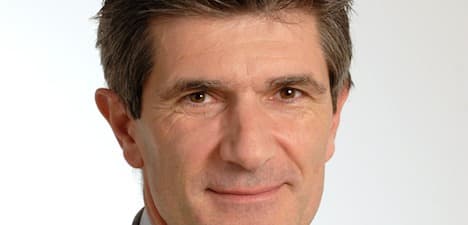Tax evasion standards needed: Swiss banker

Swiss banks could adapt to a significant easing of their cherished secrecy practices, but only if global standards are created for information exchange to fight tax evasion, the head of the Swiss Bankers Association says.
"Today, there is no global standard" for the automatic exchange of banking information, Patrick Odier told the NZZ am Sonntag weekly.
"If that changed, we could also adapt," he said, stressing the importance of Switzerland's participation in creating the global standards.
In Switzerland, banking secrecy has for decades been seen as an immutable practice aimed at privacy protection, in the same way as medical confidentiality.
Although the Alpine country has recently been cracking down on undeclared funds in a bid to clear its reputation as a tax haven, it has so far stubbornly refused to consider allowing the automatic exchange of banking information.
Odier said in Sunday's interview that the best platform for creating global standards on the transfer of banking details was the Organisation for Economic Co-operation and Development (OECD).
Switzerland is one of 14 countries which have not yet signed on to the basic ideas of bank information sharing under the OECD Global Forum guidelines.
Odier insisted it was vital that Switzerland be "represented with the best possible people, so we can have a say in the drafting of the standards," also urging Bern to be "proactive" in taxation discussions with its European neighbours.
"We can't wait for them to come to us," he said.
Odier, meanwhile, said he did not expect Swiss banking secrecy to disappear completely.
"We must now create a banking secrecy that guarantees confidentiality, but which cannot be misused for illegal purposes," he said.
Odier's comments were published on Sunday, two days after the Group of 20 economic powers called for the global adoption of standards for sharing bank account information to fight tax evasion.
Comments
See Also
"Today, there is no global standard" for the automatic exchange of banking information, Patrick Odier told the NZZ am Sonntag weekly.
"If that changed, we could also adapt," he said, stressing the importance of Switzerland's participation in creating the global standards.
In Switzerland, banking secrecy has for decades been seen as an immutable practice aimed at privacy protection, in the same way as medical confidentiality.
Although the Alpine country has recently been cracking down on undeclared funds in a bid to clear its reputation as a tax haven, it has so far stubbornly refused to consider allowing the automatic exchange of banking information.
Odier said in Sunday's interview that the best platform for creating global standards on the transfer of banking details was the Organisation for Economic Co-operation and Development (OECD).
Switzerland is one of 14 countries which have not yet signed on to the basic ideas of bank information sharing under the OECD Global Forum guidelines.
Odier insisted it was vital that Switzerland be "represented with the best possible people, so we can have a say in the drafting of the standards," also urging Bern to be "proactive" in taxation discussions with its European neighbours.
"We can't wait for them to come to us," he said.
Odier, meanwhile, said he did not expect Swiss banking secrecy to disappear completely.
"We must now create a banking secrecy that guarantees confidentiality, but which cannot be misused for illegal purposes," he said.
Odier's comments were published on Sunday, two days after the Group of 20 economic powers called for the global adoption of standards for sharing bank account information to fight tax evasion.
Join the conversation in our comments section below. Share your own views and experience and if you have a question or suggestion for our journalists then email us at [email protected].
Please keep comments civil, constructive and on topic – and make sure to read our terms of use before getting involved.
Please log in here to leave a comment.